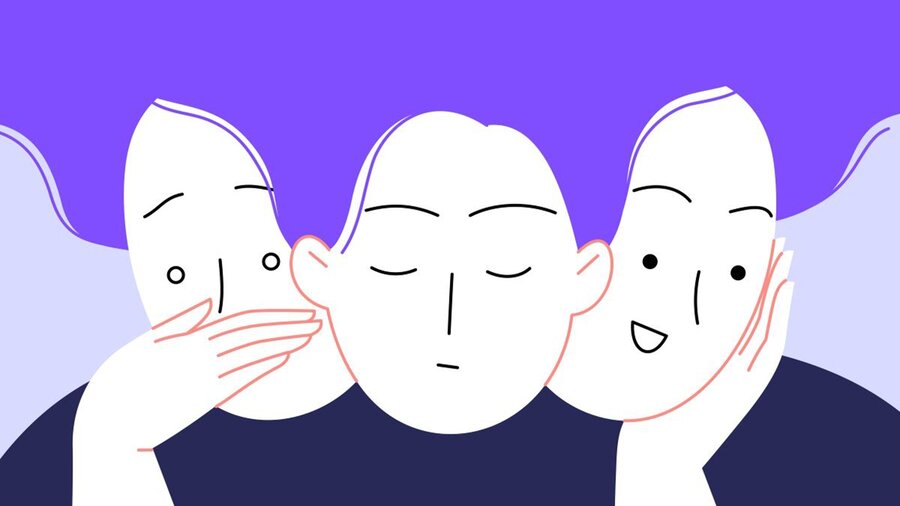What is character?
Personality disorders
Paranoid personality disorder
Schizoid personality disorder
Schizotypal personality disorder
Borderline personality disorder
Antisocial personality disorder
Dramatic personality disorder
Narcissistic personality disorder
Obsessive-compulsive personality disorder
Dependent personality disorder
Causes of personality disorders
How is the treatment of personality disorders?
What is character?
Personality is a set of characteristics, behaviors, patterns and individual integrity that each person develops over time. Personality is a combination of talents, individual characteristics, cognitive, perceptive, emotional and behavioral capacities that determine a person's behavior and reactions in different situations and environments.
Personality refers to the complexity of a person and includes various factors such as genetics, upbringing, environment, education and life experiences. Together, these factors determine a person's ability to adapt to the social environment and face challenges. In fact, a person's personality has a certain originality and distinction and requires relatively stable orientations.
Personality is usually defined on the basis of four basic elements: neuroticism (the degree of stress and discomfort in facing life's problems and pressures), sociability (a person's attention and trust in others), extroversion (tendency to new experiences and social interactions) and acceptance of feedback. (the ability to evaluate and change one's behavior and performance).
Personality disorders
Personality disorders are types of psychological problems that include irregular and fixed patterns of thinking, emotions and personality behaviors. These disorders can affect the relationships between the person and others and affect the quality of daily life. Some well-known personality disorders include:
1.Histrionic personality disorder: characterized by an excessive need for attention and influence from others, showmanship, and lack of emotional stability
2.Avoidant personality disorder: which is associated with avoiding social relationships and responsibility.
3.Anxious personality disorder: characterized by uncontrollable worry, distress, and anxiety about everyday situations.
Please see a clinical psychologist so that she can accurately diagnose you and provide you with the right treatment.
Paranoid personality disorder
Paranoid personality disorder is one of the personality disorders that manifests with inevitable patterns and behaviors. People with this disorder tend to make inaccurate and incomplete beliefs and interpretations about the intentions and thoughts of others. They experience feelings of hostility and chronic suspicion towards others and constantly think that others have bad intentions towards them.
Some of the signs and symptoms of paranoid personality disorder are:
- Measuring and exaggerating the interpretation of others
- Unavoidable and negative interpretation of the actions and behavior of others
- Inability to change or correct incorrect beliefs and interpretations
- Excessive sensitivity to the opinions and criticisms of others
- Strong suspicion and conflict with personal relationshipsThe treatment of this disorder is done through therapeutic methods, often a combination of psychological and pharmaceutical methods. The main goal of treatment is to reduce symptoms and improve the quality of life of the affected person. But it should also be noted that the treatment of this disorder requires care and patience, because people who suffer from paranoid personality disorder may avoid the treatment of caregivers and psychologists. Therefore, it is important to refer the person you are concerned about to a professional for the best answer
Schizoid personality disorder
اختلال شخصیت اسکیزوئیدIt is one of the personality disorders associated with unusual, unstable and unusual social patterns. People with this personality disorder show characteristics similar to people with schizophrenia, but at a lower level of severity and sudden onset of schizophrenic symptoms.
Signs and symptoms of schizoid personality disorder include:
- Not being connected to general social relations and having strange behavior
- Unwanted and perhaps unrelated thought pattern and style of expression
- Experiences of reality and various imaginations
- A sense of alienation and separation from the outside world
- Thoughts and beliefs that are in conflict with social norms and rules
- Absence of correct reaction and abnormality in emotional experiences
To diagnose and treat this disorder, it usually requires a team of several specialists, including clinical psychologists, psychiatrists, and other psychological specialists. Treatment includes drug treatment and treatment methods such as psychology based on psychological examination. In this way, treatments may improve the control of symptoms and improve the quality of a person's life.
Schizotypal personality disorder
Schizotypal personality disorder is one of the personality disorders that manifests with inevitable patterns and behaviors. People with this disorder have a prominent and unusual personality that shows some characteristics similar to the symptoms of schizophrenia, but at a lower level of severity and impact on a wide range of daily life.
The signs and symptoms of schizotypal personality disorder include:
- Unusual and generally creative thinking patterns and ideas
- Profound and unusual psychological experiences, such as fascinating experiences, a tendency to visualize, and unusual thoughts
- Difficulty in establishing normal social relationships and anxiety in facing human relationships
- The feeling of not trusting others and doubting the behavior and intentions of others
- Tendency to unreasonable and incorrect beliefs and interpretations about the realities of the surrounding environment
To diagnose and treat schizotypal personality disorder, a team of several specialists is usually needed, including clinical psychologists, psychiatrists, and other psychological specialists. Treatment includes drug therapy (if necessary), counseling, and evidence-based therapies such as psychology. In this way, treatments may improve the control of symptoms and improve the quality of a person's life.
Borderline personality disorder
Borderline personality disorder (maladaptive or borderline personality disorder) is one of the personality disorders associated with discrete behavior patterns and lack of stability in identity and social relationships. People who experience this disorder are usually known for not having clear boundaries in their behaviors, emotions, and identity.
Signs and symptoms of borderline personality disorder include:
- Lack of strength in identity and weak relative formation in personality
- unconventional and incompatible relationships with others; Such as extreme behaviors to gain approval from others or leaving relationships suddenly
- Strong impulsiveness and unresponsiveness to the fear of release or rejection
- extreme swings in mood (eg, sudden disgust, depression, or tolerance of failure)
- Suicidal or self-injurious behaviors
- Fear of loneliness as well as fear of closeness
Treatment for borderline personality disorder generally involves a combination of psychological therapies, cognitive behavioral therapy, and in some cases, drug therapy. The main goal of treatment is to reduce symptoms and improve the quality of life of the affected person. During treatment, cooperation with the team of specialists and patience may be necessary to achieve the appropriate therapeutic improvement.
Antisocial personality disorder
Antisocial personality disorder (AP) is a personality disorder that is associated with persistent and persistent patterns of violating the rights of others and social rules. People with this disorder live by bullying, cheating, ignoring the feelings and needs of others, and ignoring social responsibilities.
Signs and symptoms of antisocial personality disorder include:
- violation of the rights of others and social laws; Such as theft, fraud, psychological and physical domination over others, violence and crime
- Inability to be patient and understand the needs and feelings of others
- Neglecting to fulfill social responsibilities and not accepting the consequences of illegal behavior
- Lack of relationship support, lack of trust in others, and a tendency to use others to improve one's personal circumstances
- Bullying, threatening and humiliating others
- Lack of feelings of sympathy and disobedience to social rules and regulations
Due to the complexity of this disorder, it is usually difficult to treat. It may include several treatment processes such as psychological therapy, cognitive behavioral therapy, drug therapy, as well as individual participation in group therapy programs. The main goal of treatment is to reduce symptoms and improve the quality of life of the affected person. The team of experts and providing appropriate support are among the important factors in the success of the treatment of this disorder.
Dramatic personality disorder
Dramatic personality disorder, or histrionic personality disorder, is one of the personality disorders associated with unstable patterns and behaviors and the need for excessive attention from others. People with this disorder usually focus their needs and feelings on provoking the needs and attention of others, and they resort to stretching and attracting a lot of attention to express their desires and feelings.
The signs and symptoms of dramatic personality disorder are:
- A tendency to emphasize one's wants, needs, and feelings in order to attract the attention of others
- A high dependence on the approval and attention of others and an urgent need to establish oneself through attention from others
- Improper effective and emotional behaviors in interpersonal relationships; Such as breaking up in romantic relationships, intensifying and expanding conflicts, and using sexual attraction to attract attention
- Instability and lack of a sense of adversity or question in facing one's own problems turns into a striking expression of physical pains and problems.
- Antisocial feeling and inability to provide appropriate emotional responses
- The tendency to use sexual attractiveness to attract the attention of others
Diagnosing and treating dramaturgical personality disorder usually requires a multidisciplinary team including clinical psychologists, psychiatrists, and other psychological specialists. The treatment of this disorder includes psychological therapy, cognitive behavioral therapy, and in some cases, drug therapy. The main goal of treatment is to reduce symptoms, increase independence and social abilities, and improve the quality of life of the affected person.
Narcissistic personality disorder
Narcissistic personality disorder, or narcissistic personality disorder, is one of the personality disorders that is associated with a significant need for admiration and special attention from others and a belief in superiority and lack of need from others. People with this disorder usually have a lot of optimism and pride about themselves, need to introduce and emphasize themselves, and may use others to achieve their personal goals.
Signs and symptoms of narcissistic personality disorder include:
- Extreme self-centeredness and a lot of attention to oneself and belief in one's own superiority and deviance from others
- Excessive need for admiration, attention and approval from others
- Disregarding the needs, feelings, and experiences of others except when they are directly related to themselves
- Wearing a narcissistic mask and showing superiority and unrealistic abilities to others
- Using others as a means to achieve personal goals
- Humble behaviors and stopping personal relationships in case of threatening or mistrusting the narcissist
- Lack of ability to feel sympathy and coexistence in relationships
To diagnose and treat narcissistic personality disorder, it is usually necessary to work with a team of clinical psychologists and psychiatrists. Treatment for narcissistic personality disorder usually includes psychological therapy, cognitive behavioral therapy, and in some cases, drug therapy. The main goal of treatment is to reduce symptoms, increase social abilities and improve self-confidence and interpersonal interactions of the affected person.
Obsessive-compulsive personality disorder
Obsessive-compulsive personality disorder is one of the personality disorders that is associated with continuous patterns of fearing combinations, doing things accurately and without mistakes, promoting negative fantasies and unrealistic worries. People with this disorder usually need to have complete control over all the details and events of their lives and may get involved, details and escape from their fantasies.
The signs and symptoms of obsessive-compulsive personality disorder are:
- Great attention to detail and accuracy in doing things
- Excessive worry and fear of mistakes and lack of control over events
- partiality and repetition of work continuously and reflecting it in extra time
- Fantasies and unrealistic measurements about events and plans
- Inability to make decisions due to doubt and fear of negative consequences
- Persistent and excessive concerns about health, safety, and order
The diagnosis and treatment of obsessive-compulsive personality disorder usually requires a team of several specialists, including a clinical psychologist and a psychiatrist. The treatment of this disorder may include psychological therapy, cognitive behavioral therapy, drug therapy, as well as individual participation in group therapy programs. The main goal of treatment is to reduce the daily stress and limitations that this disorder gives to a person's life, to increase satisfaction and quality of life, and to help a person manage his fears and worries.
Dependent personality disorder
Dependent personality disorder is one of the personality disorders that is associated with a significant difference between oneself and others in terms of abilities, value and self-concept. People with this disorder usually need to be highly dependent in relation to others and depend on the approval and affirmation of others to feel their strength and worth.
Signs and symptoms of dependent personality disorder include:
- Hesitation and hesitation in making decisions due to the inability to recognize and determine one's needs and desires
- Excessive concern about the relationship and fear of rejection and abandonment by others
- Too much dependence on the opinions and approval of others and dominance in order to maintain the relationship in some manners
- Violating one's personal boundaries due to concern for supply and not accepting criticism
- Lack of self-confidence and ability to make independent decisions
- Inability to create healthy and balanced relationships with others
- Continually subordinating personal needs and desires to serve and satisfy others
Diagnosing and treating dependent personality disorder usually requires a multidisciplinary team, including a clinical psychologist and psychiatrist. Treatment for this disorder may include psychological therapy, cognitive behavioral therapy, and group or family processes. The main goal of therapy is to reduce the need for approval and affirmation from others, promote self-acceptance and self-confidence, and develop healthy and independent relationships with others.
Causes of personality disorders
Having personality disorders is the result of a combination of genetic and environmental factors. Possible causes of personality disorders include:
- Genetic factors: The existence of genetic factors plays an important role in some personality disorders such as antisocial personality disorder and histrionic personality disorder. Having family members with these types of personality disorders can increase the risk of them.
- Life experiences and environment: Life experiences and environment also play an important role in the development and formation of personality disorders. Family communication defects, substance abuse, parental abuse and transference, sexual abuse, isolation and loneliness can cause personality disorders.
- Disruptive life events: Disruptive events such as disturbing behaviors and difficult life experiences can cause personality disorders. For example, the experience of doubt and rejection in relationships, being seen as a child, constant pressure and stress can be called psychic secretion and ultimately lead to personality disorders.
- Defects in mental development: some personality disorders are the result of defects in mental growth and development during childhood and adolescence. Some communication skills and how to manage emotions are formed in these courses, and if they are defective, personality disorders may occur.
It is important to know that not all people who face the above factors are necessarily diagnosed with a personality disorder. In addition, the type of personality disorder and its severity may depend on the combination and interaction between different factors. Finally, the correct diagnosis and treatment is achieved after a psychological examination and careful examination by a clinical psychologist.
How is the treatment of personality disorders?
The treatment of personality disorders is multiple and diverse and may include a combination of different methods and interventions. In the following, we examine some common methods for treating personality disorders:
- Psychological examination: Psychological examination is known as one of the most important methods of treating personality disorders. Psychological examination can include things like behavior analysis, interpersonal communication analysis, building healthy relationships and improving self-awareness.
- Cognitive behavioral therapy (CBT): CBT focuses on changing negative patterns in people. This therapy can help by changing unhealthy thoughts, beliefs and behaviors, improving self-regulation and harnessing inner skills.
- Drug treatment: In some cases, the psychiatrist may use drugs as part of the treatment. Drug treatment can help reduce symptoms such as anxiety, depression, tension and sleep disorders.
- Group therapy: Group therapy may include group sessions with people with personality disorders. These meetings can be an opportunity to share experience and learn interpersonal and communication skills.
- Family therapy: Family therapy can be helpful in improving family dynamics and helping the person with personality disorder and their family communicate in the best possible way.
It is important to understand that each person and each personality disorder is unique, and each person's treatment needs may be different. Therefore, it is always recommended to refer to a specialized team of clinical psychologists and psychiatrists to apply the appropriate treatment plan for each person.


